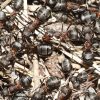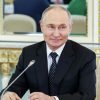
Alexey Urmanov entered the history of Russian figure skating as the last champion of the USSR, having won this title in 1991 in Kiev, and the first Russian Olympic champion in single skating, taking gold in Lillehammer. On the day of the 50th anniversary of the main gentleman of Russian figure skating, the brightest pages of Urmanov’s biography are remembered.
The first performer of a quadruple jump In 1989, 17-year-old Alexey Urmanov joined the group of then not yet Professor, but already Alexei Nikolaevich Mishin. Already in the first season of working together, the Leningrad figure skater became a bronze medalist at the USSR Championship among adults and a silver medalist at the Junior World Championships held in the USA. At the All-Union Championship in Minsk, Urmanov performed a quadruple jump without error for the first time in the history of figure skating. Two years earlier, the ISU awarded a quadruple toe loop to Kurt Browning, but he made a mistake on the exit.
However, Urmanov himself claims that it is not so important who was first: he, Browning, or Alexander Fadeev, who swung at the quad long before them. The important thing is that in the early 90s there were brave souls who took the path of making programs more complex. Today, many coaches can teach their athletes multi-rotation jumps, but back then in the USSR only Mishin was able to do this.
At the age of 18, Urmanov entered the Olympics for the first time and took fifth place in Albertville. This result was considered quite worthy for a debutant. Moreover, the gold medal was brought to the United Team’s treasury by Viktor Petrenko from Odessa.
Sensation in Lillehammer Two years later, at the Olympics in Lillehammer, where the Russian national team competed as a separate team for the first time, the St. Petersburg skater was not considered a favorite. At the 1993 World Cup he won bronze, losing to Canadians Kurt Browning and Elvis Stojko; at the 1994 European Championship he was also content with third place, behind the Ukrainians Petrenko and Vyacheslav Zagorodnyak. Meanwhile, a very strong company has gathered in Norway. In addition to the above-mentioned skaters, there is the incredibly artistic Frenchman Philippe Candeloro and the 1988 Olympic champion Brian Boitano, who returned to amateur sports for his second Olympic title.
To go for gold in the Olympic season, Mishin chose a win-win classic. In the short program, Urmanov performed to “Rigoletto”, and in the free program he appeared in the image of Figaro.
“
“For the productions, the coach attracted the best choreographers from the leading St. Petersburg theaters,” said Urmanov. — We sought to present balanced programs. Even though I was inferior in technique to Stoiko, and in artistry to Candeloro, they give two marks for performances.”
The hardest thing, according to Urmanov, was to get the competitors' assessments out of his head. “This was impossible, given the presence of Oksana Grischuk in our team,” recalled the Olympic champion. “It was she who announced before going on the ice in the short program that Petrenko and Boitano did not perform in the best way. I just didn’t have time to stop Oksana, who was in a hurry to share this joy Although I thought to myself: “Who is pulling your tongue?”
Browning, who was traveling with Urmanov to the skating rink on the same bus, received the same information. The Canadian could not cope with the psychological pressure. He was already mentally fiddling with the gold medal in his hands, although he had not yet performed the short program. So, after the first day of competition, three favorites dropped out of the medal contenders.
How they managed to get ahead of Candeloro and Stoiko, Alexei Mishin’s student did not explain. Well, the Professor himself, after returning from Lillehammer, uttered his famous phrase: “For the rest of my life I am grateful to Urmanov for making me the coach of the Olympic champion.”
Miracle in Bercy In addition to Olympic gold and bronze at the 1993 World Cup, Urmanov’s track record includes five more medals at the European Championships, including only one gold. Alexey became the champion in 1997 in Paris, and this victory can safely be called a miracle. During the draw for the short program, Urmanov pulled out the first starting number and performed, to put it mildly, not brilliantly. I took only sixth place, which, under the old judging system, practically eliminated my chances of winning.
Mishin then even treated Russian journalists to French wine at the press center of the Bercy sports palace. Like, guys, drink out of grief. The Professor had more hopes for Alexei Yagudin, who was then gaining strength, and also found himself in the strongest warm-up. It featured Ilya Kulik, who was in the lead after a short one, Zagorodnyuk, Candeloro and ex-Rigian Andrei Vlashchenko, representing Germany. However, what happened on the ice at Bercy defies logic.
Everyone made mistakes, but Urmanov performed all the elements after the unsuccessful quadruple flawlessly. During Candeloro's rental, the music suddenly stopped, and this unsettled the emotional Frenchman. Before the performance of Vlashchenko, who closed the tournament (at that time, starting numbers in the free program were determined by lot), Zagorodnyuk was in the lead, ahead of Urmanov and Kulik.
Ukrainian journalists had already invited the Russians (in those days we celebrated the victories of our athletes together) and unpacked the vodka brought from Kyiv. Vlaschenko, like the rest of the participants, made plenty of mistakes, but quite unexpectedly the Finnish referee put him… in first place. This immediately confused all the plans.
After complex mathematical calculations, which, probably, only Alexander Lakernik understood, Kulik moved from third place to fourth, Candeloro — from fourth to second, and Zagorodnyuk, who was already ready to wear in the hands of the Ukrainian delegation, dropped to third. And Urmanov became the European champion!
Happy Mishin ordered all Russian journalists to gather in a cafe next to the Bercy sports palace, taught them to drink Calvados and kept repeating: “What a good job you guys have! Go to such beautiful cities as Paris, meet such interesting people as the Olympic coach champion and champion of Europe. If at the same time there was no need to transmit reports to their publications, there would be no price for it! «
True, such reports as the sensational victory with a move from sixth to first place did not have to be broadcast for a long time. Even with the new judging system, such highs are rare. And Urmanov himself, recalling the miracle at Bercy, called it simply natural luck.
From champions to coachesThe Olympic champion of Lillehammer won his last medal at the European Championships in 1999 in Prague. The entire pedestal was then occupied by Mishin’s students: Olympic champions of different years Yagudin, Plushenko and Urmanov. Moreover, youth prevailed over experience. After this, at the age of 26, Alexey ended his sports career.
“
“The injury I received could not be treated,” he explained his decision. “The ligament tore at the place of its attachment to the bone, and science has not come up with such glue with which it could be glued.”
Urmanov performed on the show for some time. He even became a world champion among professionals with a very original number. The St. Petersburg figure skater showed tricks on the ice. No one even thought of this in “Ice Age.”
Since 2001, Alexey Evgenievich Urmanov began coaching. The first success came quickly. His student Sergei Voronov became the champion of Russia, and Mishin, congratulating his student, started talking about “sports grandchildren.” Urmanov did not hide the fact that he used the Professor’s experience in coaching and maintained an excellent relationship with him.
After the 2014 Olympics, Urmanov’s life took a sharp turn. He moved to Sochi and began working at the Olympic training center opened in the capital of the Games. The most famous student of Sochi coach Urmanov was Sochi Olympic champion in the team competition Yulia Lipnitskaya. She came to him from Eteri Tutberidze after a series of unsuccessful performances.
““When Lipnitskaya arrived in Sochi, she resembled a small hunted animal,” said Urmanov. “Only after three or four months did she turn into the normal child she was for me at throughout the entire collaboration. We corrected something in technology, and set up interesting programs. Why Yulia ended her career at 19 years old is not a question for me.»
As Alexey Evgenievich specifically emphasized, after finishing her career, Lipnitskaya was treated for anorexia for about six months, and only then did she begin a normal life in which other interests appeared. “I don’t want to blame anyone, but after such treatment there was no question of continuing my career,” Urmanov emphasized. “I have nothing to do with this. I have not driven any of my students to anorexia, and I will not comment on the methods of other specialists.” .
Today, coach Urmanov’s main hopes are connected with Mikhail Shaydorov, who competes for Kazakhstan, a silver medalist at the 2021 YWCH and a bronze medalist at the recent ISU Grand Prix in China. “Slowly, my student is already straining top skaters at all tournaments,” the Sochi coach noted proudly. “Shaidorov has a solid set of quadruple jumps in his arsenal. We are working on introducing them into competitive programs. As Mishin liked to say, the main thing is that the student has “ motorically gifted.» And I would add: also grateful for the work we do together. I can say both about Shaidorov.»
On November 17, Urmanov turned 50.


























































Свежие комментарии